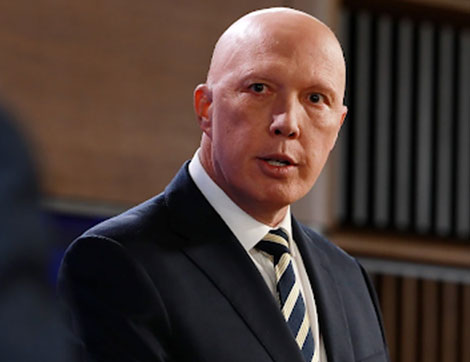
News
According to Australia’s trade minister, the historic trade agreement with India will contribute to the promotion of stability in the Indo-Pacific region.
The agreement will result in the elimination of tariffs on more than 85 percent of Australian goods exported to India, which are currently worth more than $12 billion annually.
Meanwhile, duty-free treatment will be extended to 96 percent of Indian exports to Australia. “It is a significant victory for our exporters,” Trade Minister Dan Tehan said on Saturday morning’s ABC news broadcast. “We gain access to the world’s largest and fastest-growing economy, which is India.
“By linking our two economies together, it contributes to providing an important counterbalance to the geostrategic competition that we are witnessing in the Indo-Pacific.
According to the minister, “the more we can tie ourselves with India… the better for our long-term future and the better for stability in the Indo-Pacific.”
The value of bilateral trade between Australia and India is currently more than $24 billion. It had been more than a decade since the first round of negotiations between Australia and India on an economic cooperation and trade agreement, with the first round of talks between the two countries taking place in 2011.
According to the agreement, tariffs on products such as sheep meat and wool will be eliminated immediately, while tariffs on products such as avocados, onions, nuts, and fruits will be phased out over the next seven years as part of the agreement.
Tariffs on wine will be reduced as well, and tariffs on products such as coal and metallic ores will be eliminated upon entry into the resources sector as a result.
India will reap the benefits of labor-intensive industries such as leather, gems, and jewellery manufacturing.
“This is fantastic news for lobster fishers in Tasmania, wine producers in South Australia, macadamia farmers in Queensland, and critical minerals miners in Western Australia,” Prime Minister Scott Morrison said in a statement on Tuesday.
‘This agreement is based on our strong security partnership and our joint efforts in the Quad, which has created the opportunity for our economic relationship to advance to a new level,’.
The trade agreement is also expected to have a positive impact on the education and tourism sectors. In terms of professional qualifications, licencing and registration procedures, both countries will recognise the other’s procedures.
Under the Australia-India Economic Cooperation and Trade Agreement (AI ECTA):
- Australia has confirmed post-study work rights in a side letter to a free trade agreement and will extend access for STEM graduates. Australia will maintain opportunities for former Indian students to live, study and work temporarily upon completion of a diploma or trade qualification (up to 18 months), bachelor degree (up to two years), masters degrees (up to three years) or doctoral degree (up to four years). An additional year will be available for Indians who graduate with bachelor degrees in STEM and ICT with First Class Honors (from two to three years).
- Higher education and adult education are subsectors India has guaranteed the equivalent to the best treatment accorded to its future FTA partners, meaning Australian suppliers will always receive India’s best market access given in the future to any country.
- India has agreed to implement a framework to facilitate the mutual recognition of qualifications, licensing and registration procedures between professional services bodies. This framework will facilitate the improvement of recognition of professional qualifications, and promote two-way mobility.
- Australia will also provide new access for young Indians to participate in working holidays in Australia. Places in Australia’s Work and Holiday program will be set at 1,000 per year and Australia will have two years to implement the outcome. This is expected to contribute to both workforce requirements and to tourism in the post- COVID recovery.
- India will provide a reciprocal work-based immigration route for Australians who successfully complete their studies and who wish to supplement their training with professional experience in India, to open up greater opportunities post-study.
Australian service suppliers from more than 30 industries will be assured of the best possible treatment by India in the event that the country enters into another trade agreement with another country.
Working holidays in Australia will also be made available to Indian residents, with 1000 places reserved for them, and the federal government will have two years to put the plan into effect after it is approved.
 1800 961 980
1800 961 980 info@careercalling.com.au
info@careercalling.com.au

























